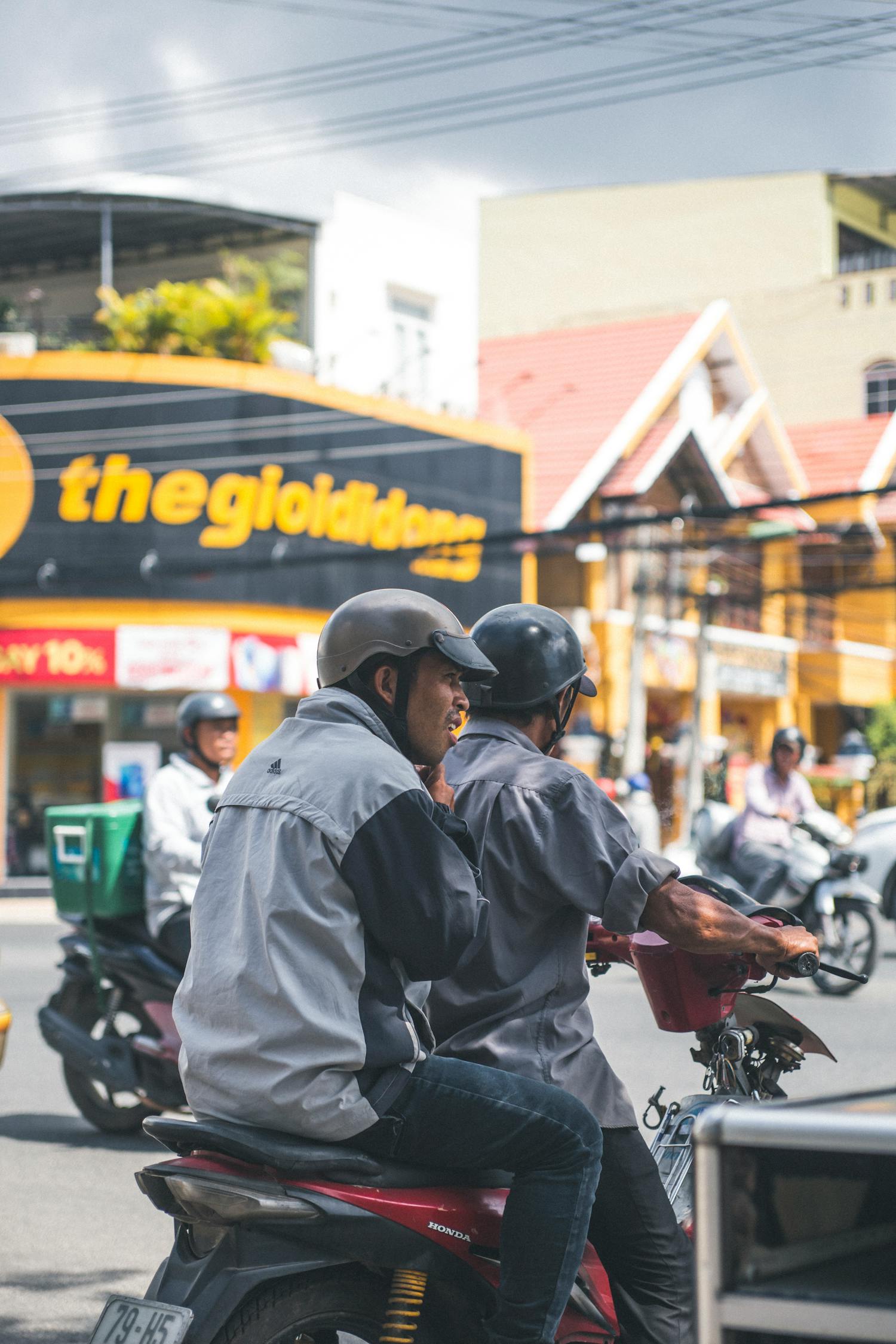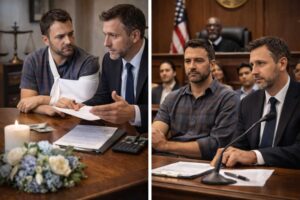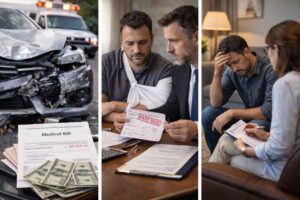If you are a motorcycle rider, then you know there is no better feeling than going on a long summer ride and feeling the wind against your bike and the pavement below. It is a solo experience, but biking is often a group activity. Group riding and motorcycle rallies have long been a part of the biking experience. In addition, many people ride with a passenger. This presents a new challenge regarding motorcycle passenger safety and liability.

The Challenge of Riding with a Motorcycle Passenger
Motorcycle passengers are a safety issue because of the nature of motorcycles. They only have two wheels (in most cases), which means they rely heavily on balance. When another grown person is on a bike, it changes everything. Their movement can throw off your balance, and the weight of the bike will be different. This will cause the bike to handle differently, especially if it is a smaller bike.
Increasing Motorcycle Passenger Safety
However more dangerous it may be to have a passenger on a motorcycle is dependent on many variables, but it is possible to greatly reduce the risk of injury by evaluating and mitigating risk.
-
Experienced Rider:
The first thing you want to ensure if you are planning on putting a passenger on a motorcycle with you is that you have experience. Typically, over one year of experience is recommended before letting somebody join you. This is because you’ll get to know your bike and how it handles on the road. It will also give you an opportunity to handle hazards, such as semi-trucks and tar snakes, that are inevitable when riding a motorcycle but require experience to handle correctly. A new rider is not equipped to handle everyday hazards with the added challenge of an extra person’s weight on their bike.
-
Big Bike:
The weight of the bike and the weight of the person will have something to do with the difficulty of riding “2-up.” If you have a larger bike, it will handle weight differentiation better than a smaller bike. The same goes for the pillion, or passenger. A very heavy passenger is going to be harder to handle. It’s something to consider. Two very slight people on a dual sport may be acceptable. Two people weighing over 200 pounds is not going to be easy. There are other things to consider here as well, such as passenger experience.
-
Signals:
You may have helmets equipped with microphones that enable you to speak clearly with your passenger. However, equipment can malfunction, and sometimes the wind just doesn’t allow equipment to work properly. In addition to the awesome advantages of today’s technology, you should have some other options for communicating with your passenger. This includes hand signals that let the pilot know the passenger needs to stop, etc. Without hand motions, equipment failure can lead to catastrophic circumstances.
-
Safety Tips:
A run down of safety tips is also essential for a passenger in order to alleviate some of the things that can ruin a ride. This includes telling the passenger not to put his or her feet down at stops and where to hold on for safety. Getting a good feel for the rider’s experience is good as well. Have they ever ridden on the back of a bike? Do they know not to counter or enhance your movement but rather move with you? These things may be obvious to the experienced rider, but you need to make sure you cover all of the basics just in case.
-
Endorsement:
It is not just the pilot of a motorcycle who needs to be concerned about safety. The passenger should also do his or her due diligence. Check to make sure the rider has a motorcycle endorsement. Florida requires an endorsement on a driver’s license if the engine for the bike is more than 50 cc. This pretty much covers all bikes that one would be willing to ride on the road let alone with a passenger.
-
Insurance:
Lastly, a passenger should make sure that the owner of the bike is carrying insurance. Florida is the only state that does not require insurance to ride a motorcycle on the open road. Make sure your driver has insurance and that they have guest passenger liability. This won’t protect you if it is someone else’s fault, but if the bike you’re riding on is at fault, you’ll have some coverage for injuries.
-
Wear Safety Gear:
Every motorcycle recommendation should be equipped with a reminder about the importance of safety gear. If you are over 21 years of age, you don’t have to wear a helmet in Florida. However, you must then carry some medical coverage in case of injury. In truth,everyone should be wearing helmets, and that includes passengers. Safety experts also recommend protective boots and clothing that can prevent road rash in some crashes. These injuries can be deadly, but even when they are not, they are painful and lengthy. Safety gear can limit a lot of the risk.
What to do if you have been in an accident?
If you are in an accident on a motorcycle, and it is not your fault, it is important to gather as much evidence as possible in order to prove that the court should hold the other party liable. This may include taking pictures, collecting contact information from witnesses, and taking photos of injuries. If you end up in the hospital, try to contact somebody who can do this for you while you are incapacitated.
Next, hire a lawyer who is experienced in personal injury law. They will know how to get you just compensation through the courts while ensuring that your medical bills get paid, and your non-monetary losses are considered.
Comparative Fault
If you feel that the accident you were in could have been caused by you, but only in-part, you may still have a case. Florida is a comparative fault state, which means your damages will only be reduced by the amount for which you were held liable. If you were more at fault then the other party, then it may not be worth filing a lawsuit. However, discuss this with your lawyer first to make sure you understand all of your rights.
Motorcycle Passenger Safety is Critical
The responsibility a rider takes on when they agree to have a passenger aboard is great. If you are going to ride with someone, make sure you are taking every safety precaution. It starts with understanding how to ride with a passenger, and if you are inexperienced, please take extra caution. It then is very important that you and your passenger wear safety gear and have proper insurance should the unthinkable happen.
The riders (and passengers) involved in motor vehicle accidents rarely go unscathed. This is why it is critical that you and your motorcycle passenger talk to each other about safety concerns and make sure you have a plan for the safest trip possible. The only fun motorcycle ride is one where everyone makes it home okay. Remember this when you begin your ride, and it will help you to make better decisions.
If you have been involved in a motorcycle accident, please contact the offices of Kirshner, Groff, and Diaz for a case review. We will give you a no-obligation consultation with a real attorney to see what kind of compensation you could be entitled to.



